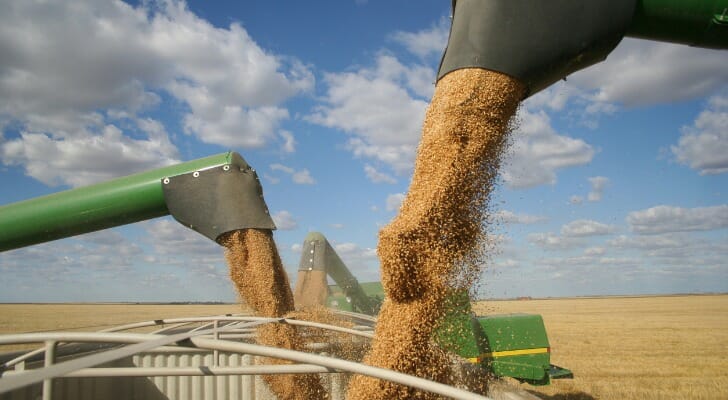A commodity trading advisor (CTA) has expertise in trading commodities and related instruments. Although a CTA can act much like a financial advisor, and some financial advisors may hold the designation, this designation is specific to advice related to commodities or futures trading. CTAs might manage investment accounts or trade futures on behalf of clients, and a CTA can be either an individual or a company. Here’s how the CTA certification is earned, and what it qualifies a financial professional to do.
If you need help managing your investments, a financial advisor can work with you to create a financial plan for your investing goals.
How to Become a CTA
If a firm or individual wants to provide advice on commodities trading, they are usually required to register as a CTA by the National Futures Association (NFA), although there are some exceptions. If an individual registers as a CTA with only the Commodity Futures Trading Commission (CFTC) and not the NFA, they can give general trading advice, put out newsletters and make recommendations, but cannot handle clients’ money. That type of CTA is known as an educational CTA. However, CTAs who wish to actively manage client funds must register with the NFA as a CTA. An individual can register as a CTA only with the Commodity Futures Trading Commission (CFTC) and not the NFA.
The Exam
In general, the first step in becoming a CTA is passing the Series 3 exam, also known as the National Commodity Futures Exam, which is administered by the Financial Industry Regulatory Authority (FINRA). The exam was created by the NFA. Although many other licensing exams require you to have a sponsor, you don’t need one to take the Series 3. All you need to do is apply on the FINRA website, fill out the paperwork, and pay a $140 exam fee. After you pass the exam, you have two years to register as a CTA with the NFA.
The two-part exam consists of 120 multiple-choice questions, and candidates have to score 70% or higher in order to pass the test. Topics you will be tested on include the basics of the futures and options markets, hedging, speculating, margin requirements, types of orders, spreading, and market regulations. The recommended study time for the Series 3 exam is 60 to 80 hours, although those with experience trading futures and options may find it takes fewer hours to prepare.
There are a few things you’ll want to remember about the exam. The Series 3 rounds down any percentage points to the next whole number. In other words, if you score 69.9% on the Series 3 exam, it will be rounded down to 69, and you won’t pass. In addition, if you fail, you won’t be able to take the exam for another 30 days. If you fail three times, you will have to wait 180 days every time you want to take the Series 3 exam after that.
Register as a CTA
To be a registered CTA, you have to be an NFA member. To become an NFA member you can complete their online membership application and pay a non-refundable fee of $200.
To register as a CTA, you’ll need to first designate a security manager to get secure access to the NFA’s online registration system. You’ll also need to complete the NFA’s online Form 7-R, annual questionnaire, and pay CTA membership dues.
In order to maintain your CTA status, you’ll have to pay your yearly dues to the NFA. You’ll also need to complete the annual questionnaire, the annual registration update in NFA’s online registration system, and the NFA’s self-examination questionnaire.
Benefits of the CTA Designation

For individuals interested in providing advice on commodities trading, or potential clients looking for advice on commodities trading, the CTA has some obvious benefits. In order to provide advice on commodities trading, an individual or firm must register as a CTA with the NFA, unless they meet one of the following exceptions.
- Advice is given to 15 or fewer people over the past 12 months and the individual or firm does not present themselves to the public as a CTA
- The individual or firm is registered with the Commodity Futures Trading Commission (CFTC) and the CTA-related advice given is solely incidental to the firm’s business or to the individual’s profession
- The advice provided is not based on knowledge of or made specifically for a client’s commodity interest account
Individuals with the designation will be able to pursue the business they are interested in. In addition, CTAs are able to collect a management fee and a performance fee. The management fee is typically 2% of all assets under management, and the performance fee is often around 20% for new money the CTA has generated. CTAs usually have a minimum investment requirement of $10,000. In other words, CTAs can make a very good income.
Clients will know that their advisor is qualified, and has most likely passed a FINRA-administered exam. In addition, clients can check and confirm that the CTA they are working with is registered with both the CFTC and the NFA. Prospective clients are also able to look for any disciplinary records relating to their CTA on the NFA website. CTAs need to provide clients with monthly account statements and maintain updated disclosure documents that outline the advisors trading methodology, performance markers, investment risks, and fees.
CTAs vs. Money Managers

Money managers are also known as portfolio managers or investment managers. Like CTAs, they provide personalized advice and manage assets. Most money managers have the chartered financial analyst (CFA) designation, and are trained to make investment decisions. However, they tend to be focused on choosing equities and bonds for their clients portfolios rather than commodities or futures.
Money managers earn a fee on transactions, and clients usually pay their money manager a percentage of the managed assets. Many money managers also have a fiduciary responsibility to act in their client’s best interest. They do not have to provide the same level of documentation that CTAs do.
A money manager’s role is to help clients reach their financial goals, buy and sell securities on their clients’ behalf, and measure performance and report to regulators in lieu of their client. CTAs focus their advice on commodities and futures, while also assisting their clients with their financial goals.
Bottom Line
If you want to build a career advising others in commodities trading and investments, you’ll probably need to become a CTA, and register with the CFTC and NFA as such. If you’re looking for a financial professional who can give you good advice on commodities trading, consider looking for someone with the CTA designation.
Tips for Investing
- Consider talking to a financial advisor about whether commodity trading has a place in your investment strategy. SmartAsset’s free tool matches you with up to three vetted financial advisors who serve your area, and you can interview your advisor matches at no cost to decide which one is right for you. If you’re ready to find an advisor who can help you achieve your financial goals, get started now.
- A chartered financial analyst is another specialist who can provide you with advice on how to invest your money, whether in a market downturn stemming from a pandemic, or a bull market.
Photo credit: ©iStock.com/AsiaVision, ©iStock.com/Lightguard, ©iStock.com/Vesnaandjic
